
26th September 2017
Creating Inclusive Cultures, an attendee’s view
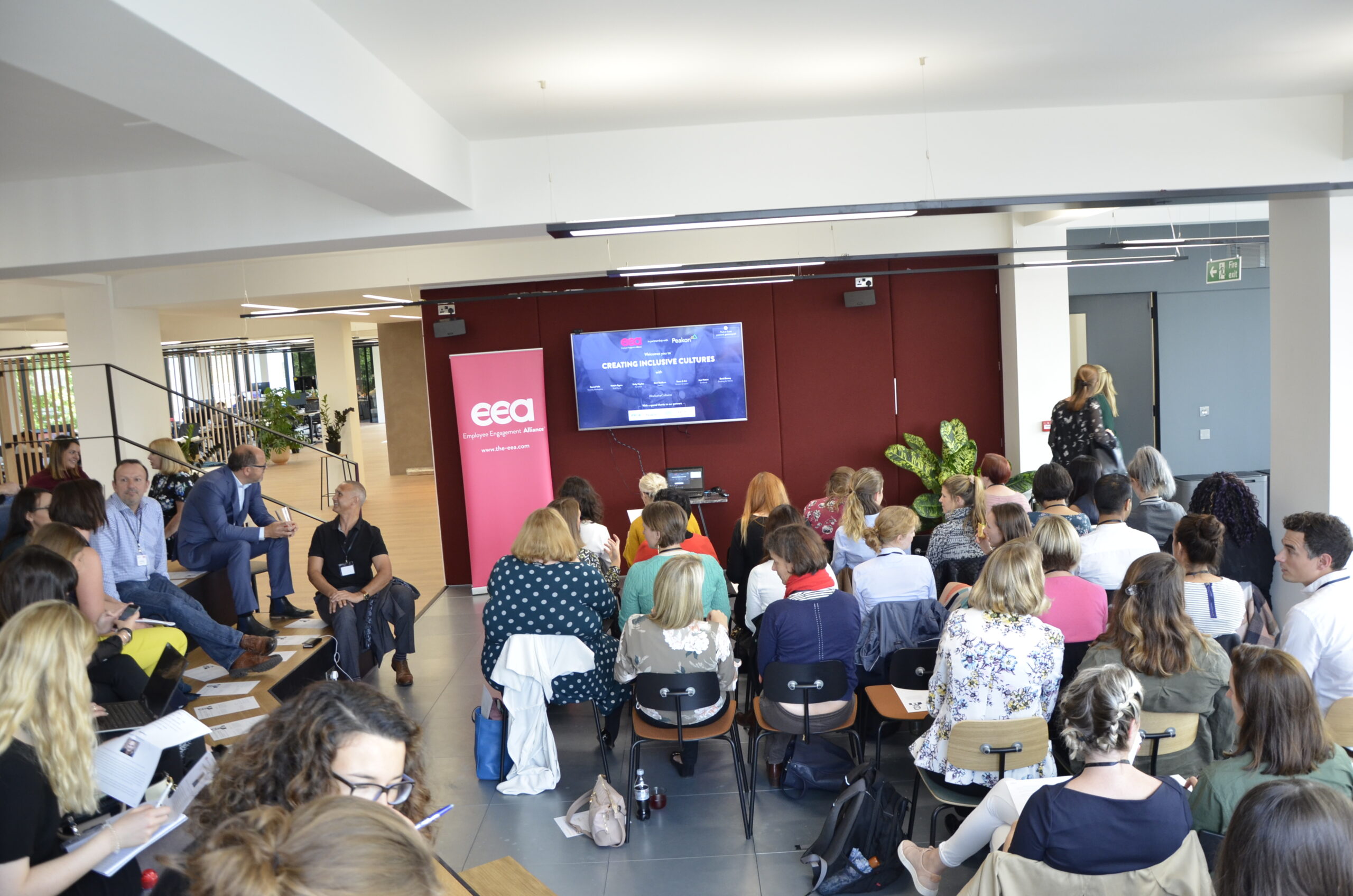
“Great stories happen to those that can tell them” Ira Glass
I always find the EEA events a breath of fresh air. No soft-selling from the sponsors, no self-promotion from the speakers, fantastic facilitation and cracking cupcakes. Tuesday’s Creating Inclusive Cultures event was no exception.
The main takeaway for me was the power of storytelling. The event showcased an eclectic mix of speakers who all had great stories to tell and tell them they did. The fact is everyone has a story but sadly too often never told and rarely listened too inside organisations.
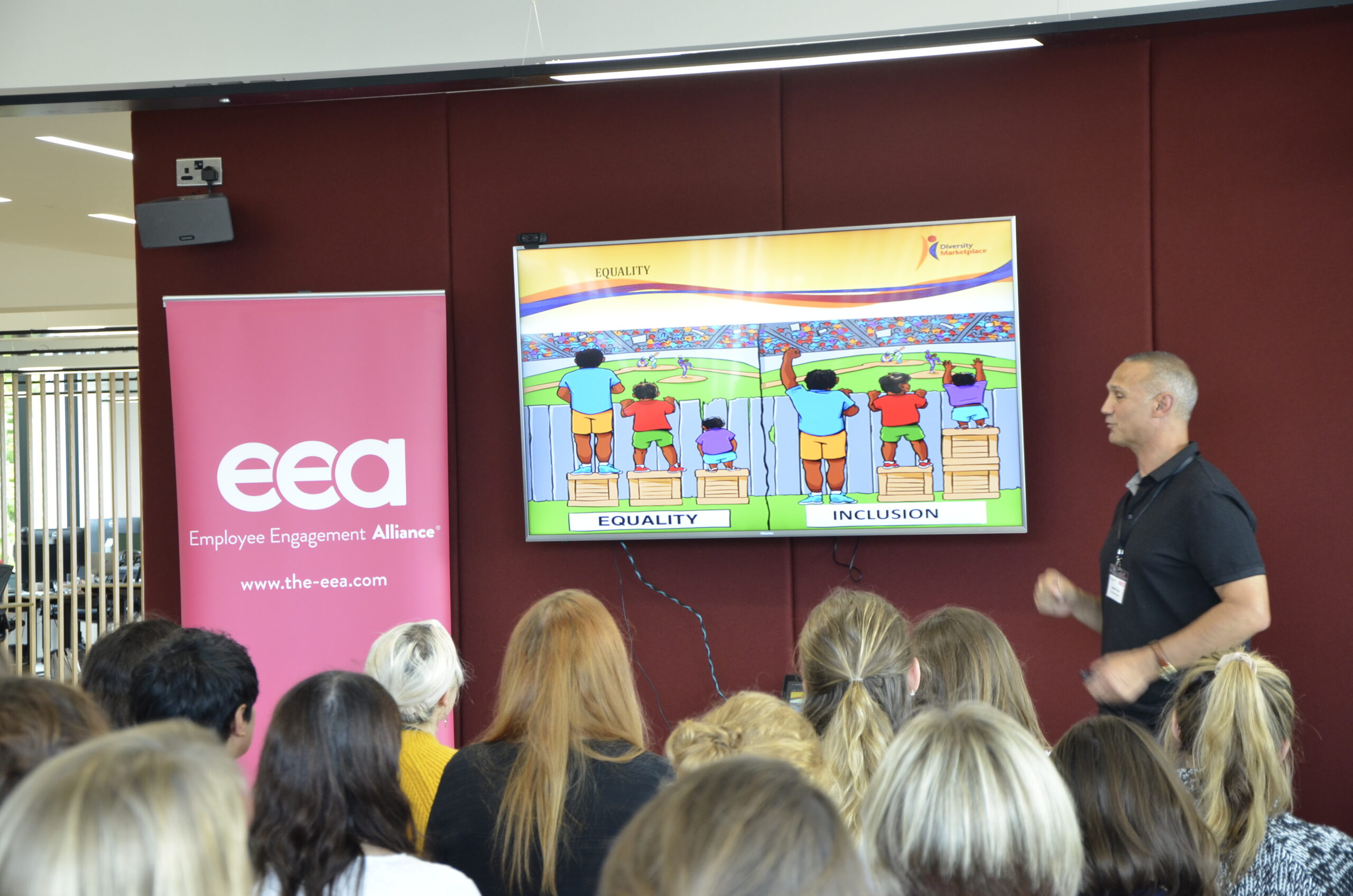 Introducing the day, Gamiel Yafai from www.diversitymarketplace.co.uk demonstrated his passion for social mobility and his desire to work with equally passionate clients and colleagues. His story of inclusion began with his first ‘Glasgow kiss’ at the age of 8 on the stairwell of a tenement flat, and all because he supported the football team from the wrong side of the Clyde. With a future focus on the use of technology in the workplace he posed the question about the future of work for those who already face barriers to employment in roles that risk being taken by robots. Perhaps the very thing that is a threat could be used to provide future opportunity?
Introducing the day, Gamiel Yafai from www.diversitymarketplace.co.uk demonstrated his passion for social mobility and his desire to work with equally passionate clients and colleagues. His story of inclusion began with his first ‘Glasgow kiss’ at the age of 8 on the stairwell of a tenement flat, and all because he supported the football team from the wrong side of the Clyde. With a future focus on the use of technology in the workplace he posed the question about the future of work for those who already face barriers to employment in roles that risk being taken by robots. Perhaps the very thing that is a threat could be used to provide future opportunity?
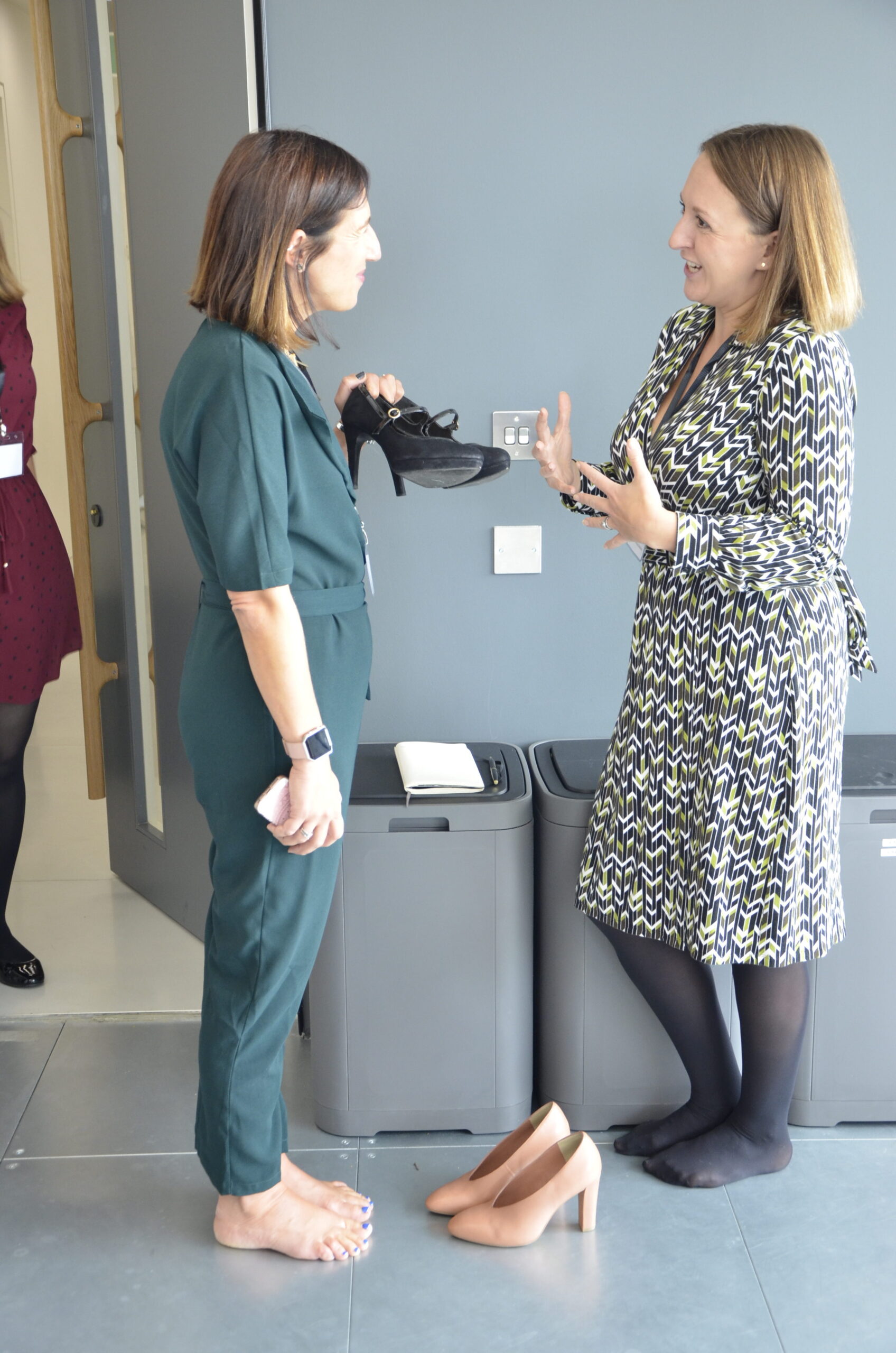
“Seek first to understand” was the recurring theme of Natalie Sigona’s story. Using the metaphor of walking in others shoes to highlight the need to value difference at work by looking beyond diversity and embrace inclusion in a more meaningful way. “If diversity is being invited to the party, inclusion is being invited on the dancefloor to dance” Natalie gave some interesting anecdotes from her daughter and young interns
that gives hope that the future generation at work possess less prejudice. One of the challenges in large organisations like Rolls Royce is the tension between embracing diversity and the desire for staying “on brand”. The way I see it is that creating inclusive cultures help organisations become unified, not uniform.
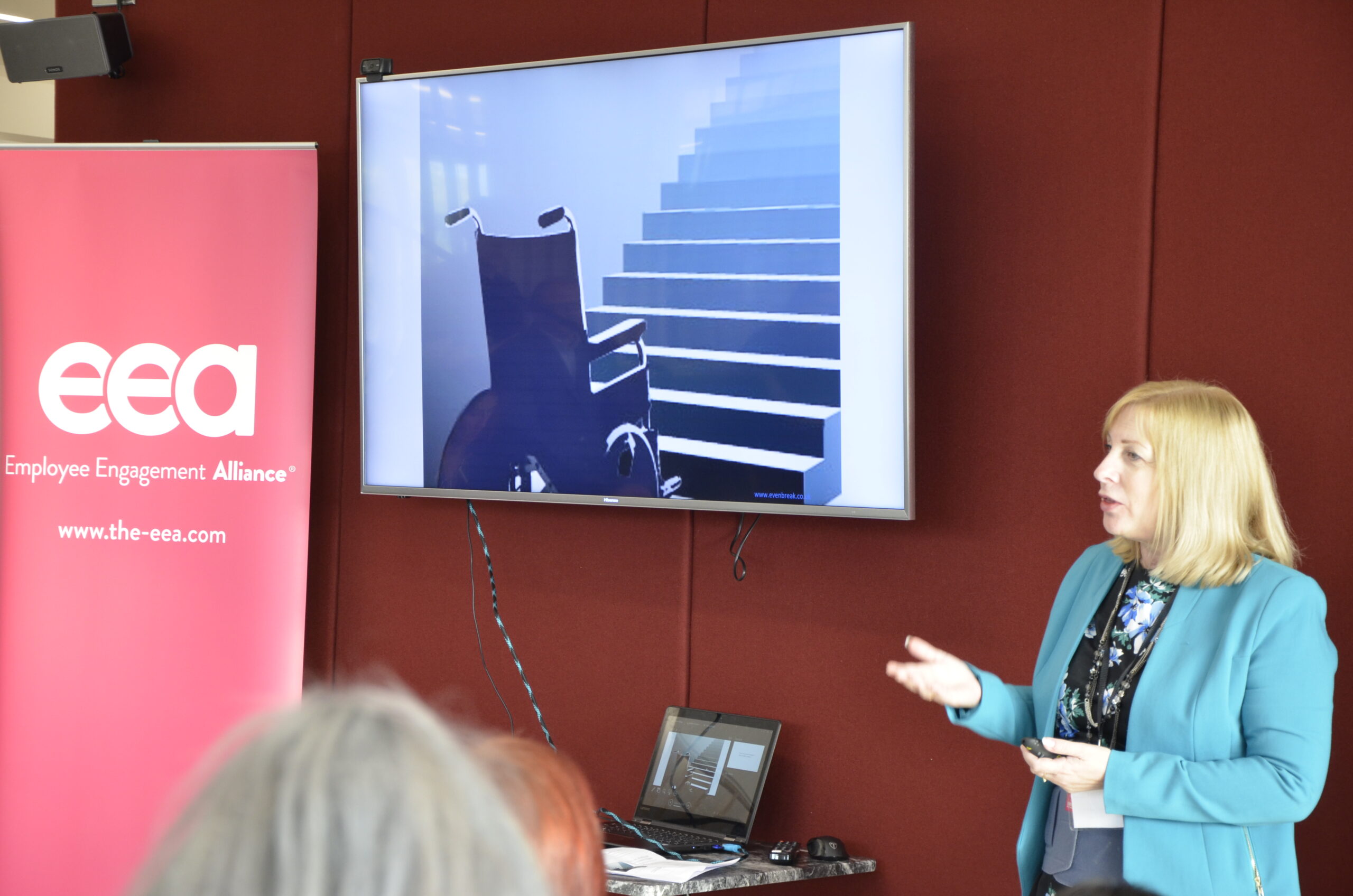 They say when you’re tired of London, you’re tired of life. Well Jane Hatton from www.evenbreak.co.uk is still buzzing from her short time in London and that has little to do with the morphine she takes to overcome her chronic back pain. Her buzz helped me see disability in a very different way. “There is no such thing as an un-disabled person they are just not disabled yet”. A thought that became a reality for Jane when she developed a degenerative spinal condition. Jane sees the problem with disability at work isn’t that people are disabled it is the fact that they are not enabled – “the wheelchair isn’t the problem, it’s the stairs”. Jane made the business case for enabling people at work. Why wouldn’t you want to employ someone who demonstrates high levels of resilience, problem solving, tenacity and creativity everyday just to get to work?
They say when you’re tired of London, you’re tired of life. Well Jane Hatton from www.evenbreak.co.uk is still buzzing from her short time in London and that has little to do with the morphine she takes to overcome her chronic back pain. Her buzz helped me see disability in a very different way. “There is no such thing as an un-disabled person they are just not disabled yet”. A thought that became a reality for Jane when she developed a degenerative spinal condition. Jane sees the problem with disability at work isn’t that people are disabled it is the fact that they are not enabled – “the wheelchair isn’t the problem, it’s the stairs”. Jane made the business case for enabling people at work. Why wouldn’t you want to employ someone who demonstrates high levels of resilience, problem solving, tenacity and creativity everyday just to get to work?
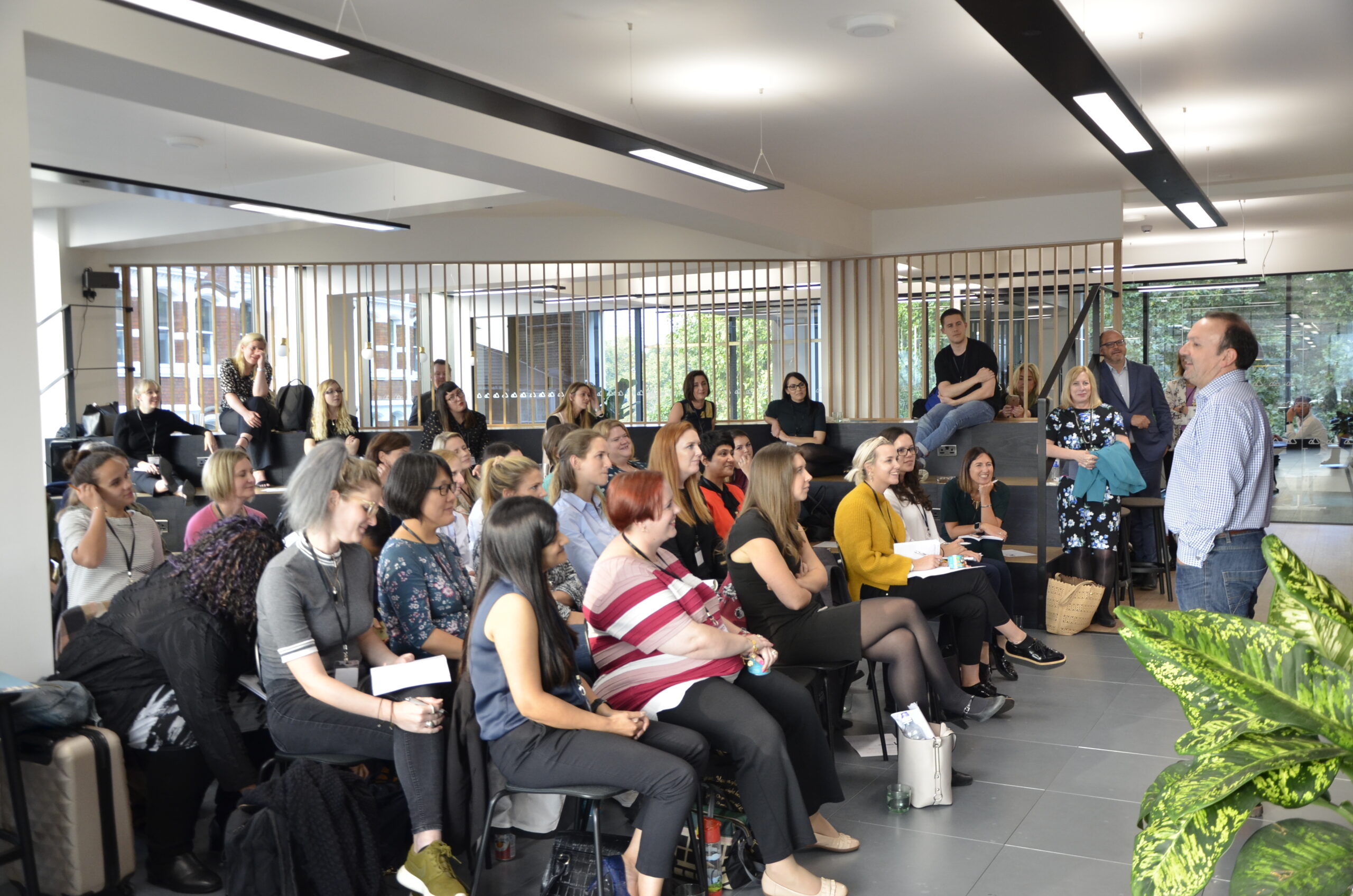
The power of storytelling will resonate with David Beeney from www.breakingthesilence.co.uk – he defines the stigma associated with mental health in the workplace as “the wall of silence” He tells his story (with the use of a few props) to inspire a little more conversation in the workplace and enable employers to understand mental health. Leaders need to set the tone from the top and upskill line managers to have regular conversations with their teams, after all that’s what they get paid for.
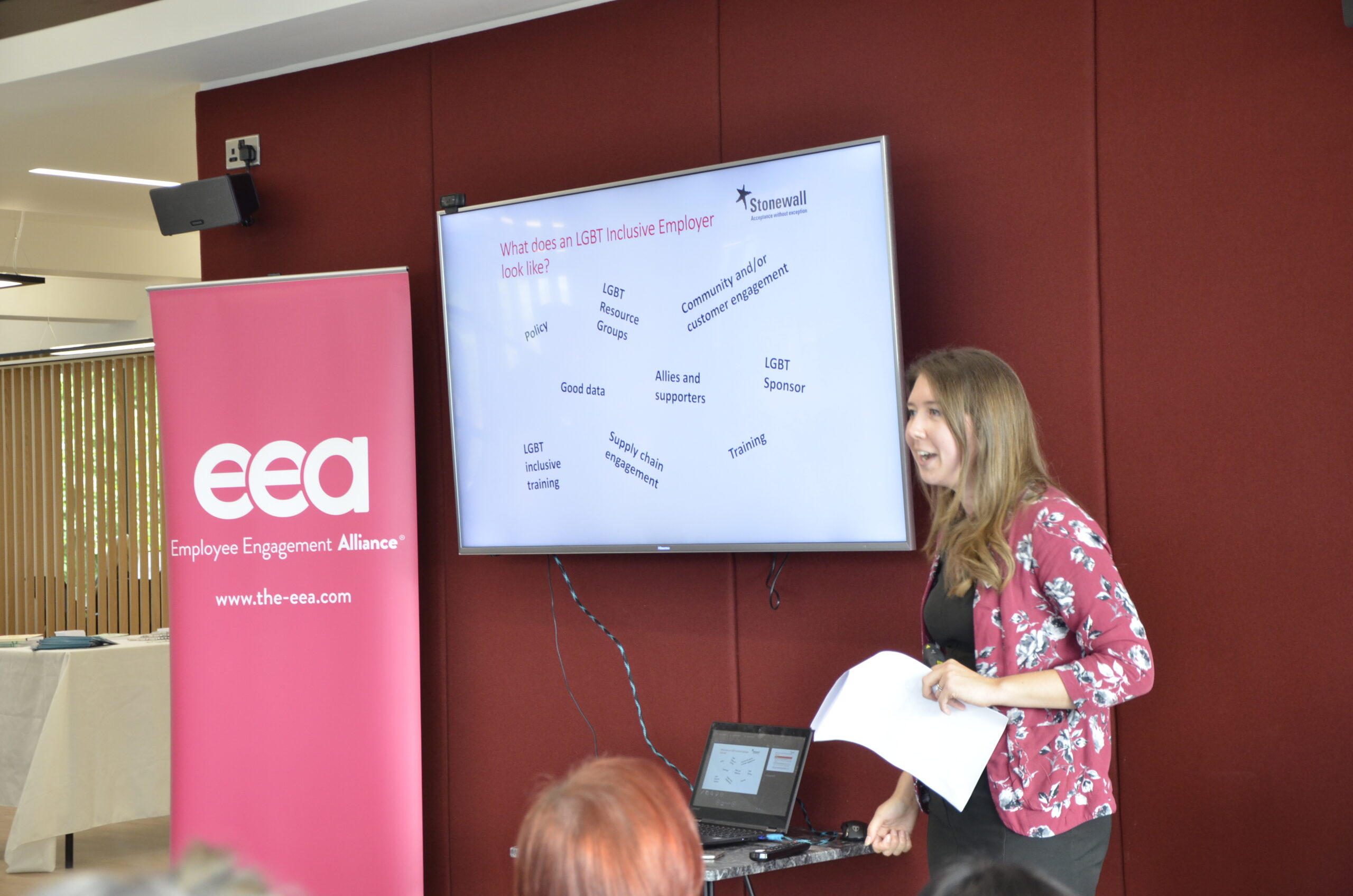 Vicky Hayden from www.stonewall.org.uk used Kieran and Sabine’s stories to highlight how many organisations still have a way to go to become LGBT Inclusive Employers. Hotfooting to the event on the back of her honeymoon, Vicky understands the pain of changing your surname in the organisation imagine what it is like for someone who changes gender? When Stephen became Sabine she still had to carry a security pass carrying Stephen’s name and photo. Kieran is gay and because of his sexuality he was subjected to workplace prejudice that limited his career progression and excluded him from social events. Until stories like Kieran’s and Sabine’s are widely socialised then this prejudice will continue.
Vicky Hayden from www.stonewall.org.uk used Kieran and Sabine’s stories to highlight how many organisations still have a way to go to become LGBT Inclusive Employers. Hotfooting to the event on the back of her honeymoon, Vicky understands the pain of changing your surname in the organisation imagine what it is like for someone who changes gender? When Stephen became Sabine she still had to carry a security pass carrying Stephen’s name and photo. Kieran is gay and because of his sexuality he was subjected to workplace prejudice that limited his career progression and excluded him from social events. Until stories like Kieran’s and Sabine’s are widely socialised then this prejudice will continue.
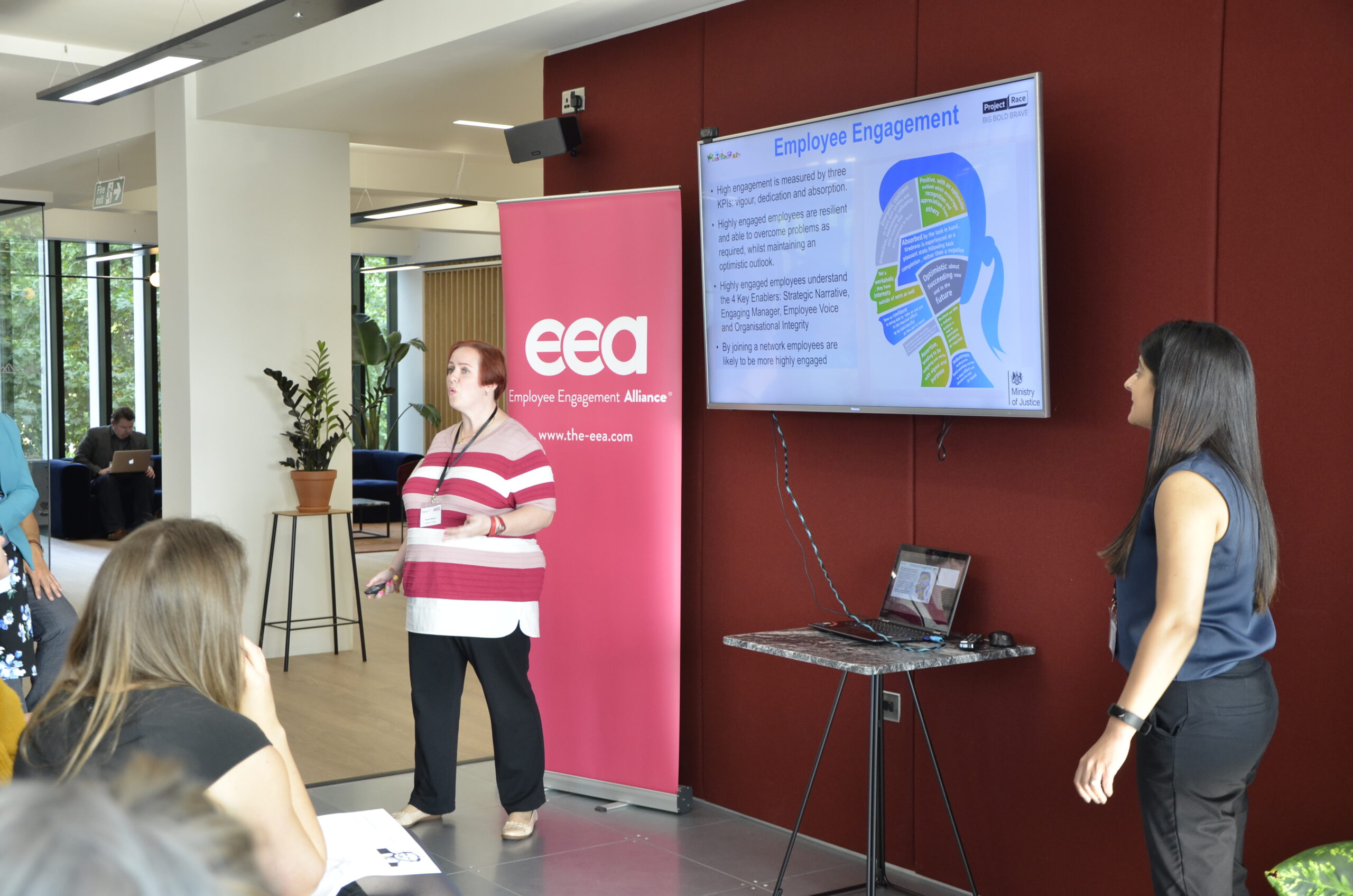 Karen Notaro and Arti Patel from the Ministry of Justice did a comedy double act to tell their story. But it was no laughing matter. Hearing Arti’s personal story about racial discrimination and seeing the stats on grading and rating proportions by ethnicity would make you think they worked for the Ministry of Injustice. Thankfully, commitment for change comes from the very top and Project Race has been set up to improve race equality and tackle disproportionate outcomes for BAME employees. A big, bold and brave initiative to help the civil service realise its vision to become the most inclusive employer in the UK by 2020. There was a determination in Karen and Arti that made me believe that “nothing was gonna stop them now”
Karen Notaro and Arti Patel from the Ministry of Justice did a comedy double act to tell their story. But it was no laughing matter. Hearing Arti’s personal story about racial discrimination and seeing the stats on grading and rating proportions by ethnicity would make you think they worked for the Ministry of Injustice. Thankfully, commitment for change comes from the very top and Project Race has been set up to improve race equality and tackle disproportionate outcomes for BAME employees. A big, bold and brave initiative to help the civil service realise its vision to become the most inclusive employer in the UK by 2020. There was a determination in Karen and Arti that made me believe that “nothing was gonna stop them now”
A lot was packed into a very engaging event, with personal stories that covered issues of discrimination on social mobility, gender, sexuality, race, disability and mental health. Thankfully the conversations and the language at work are changing for the better. The business case is clear, storytelling can create more inclusive culture and provide a sense of belonging for all employees so that they bring their true selves to work and achieve their full potential. What’s your story?
~ Sean Trainor

Sean is an independent consultant who specializes in engaging employees of organisations going through significant change. With a background in manufacturing, project and engineering management he moved into corporate communications in 2000 and has led employee communications for BNFL, Network Rail and the BBC Sport. His client list includes Nissan, Barclaycard, Balfour Beatty, Vodafone, British Gas, British American Tobacco and most recently a public sector client in Saudi Arabia.

